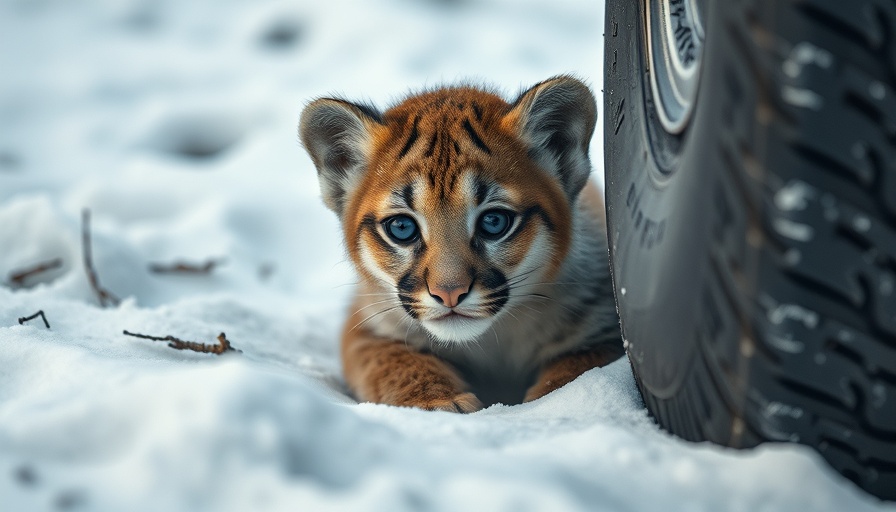
Exciting Discovery: Cougar Cubs in Michigan
In a historic moment for Michigan wildlife, two cougar cubs, aged approximately 7 to 9 weeks, were recently spotted in Ontonagon County. This marks the first confirmed sighting of wild cougar cubs in the state in over a century, reigniting hope for the revival of the state's cougar population. The discovery comes after more than a hundred years of absence, when the native cougar population was driven to extinction due to hunting and habitat loss.
The Implications of Cougar Reproduction
The confirmation of cubs in Michigan is a significant milestone for the state's ecosystem. Brian Roell, the large carnivore specialist for the Michigan Department of Natural Resources (DNR), expressed excitement about this rare event. “It’s pretty thrilling, considering this could signify the first known reproduction of cougars in the western Great Lakes states,” Roell stated, highlighting Michigan’s unique position in supporting a diverse range of wildlife, including wolves, moose, and now, cougars.
Challenges Ahead: The Fate of the Cubs
While the sighting of these cubs has sparked celebration, officials caution that their future remains uncertain, particularly as they were found without their mother. Young cubs depend heavily on their mothers for survival, including protection and nourishment. As Roell noted, “Those young cougars are very vulnerable right now.” This uncertainty highlights the fragility of newly emerging wildlife populations and the need for ongoing conservation efforts to support their growth.
Public Engagement and Conservation Efforts
The sighting of the cougars has prompted the DNR to remind the public of the importance of protecting these animals. Cougars are an endangered species in Michigan, making it illegal to hunt or harass them. The state is enlisting the public’s help in monitoring cougar activity, urging people to report sightings through the DNR's Eyes in the Field reporting system. Increased awareness and participation in conservation efforts can play a crucial role in the survival of this elusive species.
What This Means for Michigan's Ecosystem
The potential return of cougars to Michigan's wildlife landscape is not just an ecological curiosity; it’s an indication of the state's healthy habitats. As cougars occupy the top of the food chain, their presence can help regulate prey populations, which is vital for maintaining balance within the ecosystem. The ability to see these magnificent creatures in the wild is becoming increasingly possible, which gives Michiganders a unique opportunity to appreciate and protect their natural heritage.
A Sign of Hope for Conservation
This latest discovery serves as a reminder of the importance of conservation efforts across Michigan. As communities begin to witness the return of species once thought lost, it brings an opportunity to rethink our relationship with wildlife. With responsible management and habitat preservation, the future may hold even more promising developments for both cougars and other endangered species in the region.
Get Involved in Local Wildlife Conservation
Now is the time to take action! Get involved in local conservation efforts or participate in community wildlife monitoring programs. Every effort counts in making Michigan a sanctuary for its native species once again. Share your stories of wildlife encounters and contribute to the awareness that can help protect these vital species.
 Add Row
Add Row  Add
Add 




 Add Row
Add Row  Add
Add 

Write A Comment